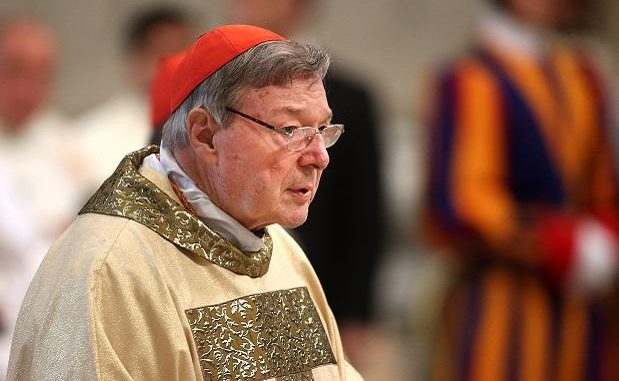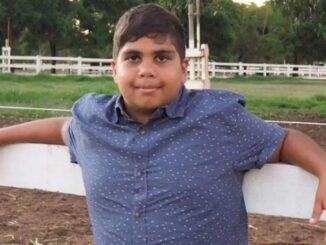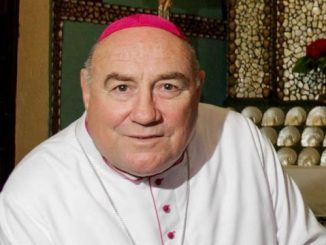
Australia’s most senior Catholic figure, Cardinal George Pell, has been charged with sex offences.
The charges relate to alleged “historical” incidents, police in the Australian state of Victoria said on Thursday.
Victoria Police Deputy Commissioner Shane Patton said the allegations were made by more than one person.
Cardinal Pell has consistently denied any wrongdoing.
The senior cleric, who is based in Vatican City, would be required to face the Melbourne Magistrates’ Court on 18 July, Deputy Commissioner Patton said.
Cardinal George Pell, has vehemently denied any wrongdoing.
He complained that he had been subjected to “relentless character assassination” during a two-year investigation into the “false” claims.
He said the Pope had granted him a leave of absence to fight the charges.
The allegations were made by a number of people, said Police Deputy Commissioner Shane Patton.
Cardinal Pell, 76, who is based in the Vatican, is considered the third-ranking official in the Holy See.
He told a news conference at the Holy See: “I’m looking forward finally to having my day in court.
“I am innocent of these charges, they are false. The whole idea of sexual abuse is abhorrent to me.”
The Catholic Church worldwide has in recent years faced a damaging series of allegations relating to sex abuse by priests, and claims that these cases were covered up.
The BBC’s James Reynolds says the charges leave the Church – and the Pope – in an uncomfortable position.
After his election in 2013, Pope Francis created a commission to deal with allegations of sexual abuse by clerics. Now he finds that one of his closest advisers faces charges of his own.
Victoria Police said they had made the decision to charge Cardinal Pell after receiving advice from prosecutors last month.
“Cardinal Pell is facing multiple charges and there are multiple complainants,” Deputy Commissioner Patton said.
A magistrate will decide next week whether to release the details and the nature of the charges ahead of the cardinal’s court appearance.
Cardinal Pell has been a strong supporter of traditional Catholic values, taking a conservative stance on same-sex marriage and contraception, and advocating priestly celibacy.
But his career has been dogged first by claims that he covered up child sexual abuse by priests, and then later that he was himself an abuser. He has always strongly denied any wrongdoing.
In 2014, Cardinal Pell was summoned to Rome to become chief of the Vatican’s finances, a new position created by Pope Francis in the wake of scandals at the Vatican Bank.
But he left behind growing anger over revelations of child sex abuse by members of the Catholic clergy in Australia.
Cardinal Pell repeatedly faced allegations from abuse victims of a cover-up and his critics accused him of appearing aloof and arrogant.
He was accused of moving one notorious paedophile priest – Gerald Ridsdale – around parishes rather than reporting him, and of attempting to bribe one of the victims to keep quiet.
He denied any wrongdoing but said he could have done more to investigate claims of abuse.
In 2016 the Australian Broadcasting Corp (ABC) aired allegations by two men who claimed Cardinal Pell had touched them inappropriately in the 1970s.
He strongly denied the allegations, describing them as a “scandalous smear campaign”.
Shockwaves – Hywel Griffith, BBC News Australia correspondent
Cardinal Pell is not just Australia’s most senior cleric, he is one of the highest-ranking officials in the Catholic world.
For two decades, he has been a frontline figure in the Church’s debate over controversial issues such as homosexuality, Aids and stem cell research.
He has also handled the Church’s official response to allegations of sexual abuse within its Australian ranks during a series of inquiries.
When he gave evidence via video link to a Royal Commission into abuse last year, some abuse survivors flew all the way to Rome to watch.
It is hard to overstate, therefore, the significance of the decision to press charges against him.
When he returns to face those charges in an Australian court, every second will be scrutinised not just by the Australian press, but by members of Catholic congregations across the globe.
Source: bbc.co.uk






Be the first to comment